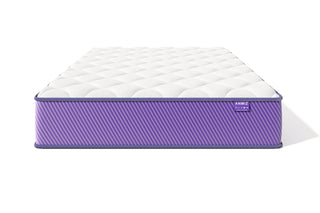Feeling tired after a short night of rest is easy to understand, but the impact goes far deeper than fatigue. Our bodies rely on quality rest to repair muscles, balance hormones, maintain immunity, and support long-term vitality. The relationship between sleep and physical health is powerful. When sleep suffers, many systems in the body struggle to function at their best. When sleep thrives, strength, immunity, and energy increase.
- 1. Sleep and Physical Health in Everyday Functioning
- 2. How Sleep Supports Cellular Repair
- 3. Immune Function and Nightly Rest
- 4. Sleep and Hormonal Regulation
- 5. Cardiovascular Health and Sleep
- 6. Muscular Strength, Endurance, and Physical Recovery
- 7. Sleep and Physical Health Across the Lifespan
- 8. Environmental Factors That Influence Sleep
- 9. Nutritional Support for Sleep and Physical Health
- 10. Physical Activity and Sleep Quality
- 11. Technology’s Effects on Sleep
- 12. Building a Healthy Sleep Routine
- 13. FAQs
- 14. Conclusion
Sleep and Physical Health in Everyday Functioning
Sleep affects nearly every aspect of physical well-being. During deep sleep, the body repairs tissues and restores cellular function. Muscles recover from daily activity. The immune system strengthens. Hormones that control appetite, stress, and metabolism are balanced.
However, when sleep becomes inconsistent, even simple tasks can feel overwhelming. Energy levels decline. The body becomes more vulnerable to illness. Additionally, metabolism slows and cravings increase, which may lead to weight gain.
Sleep is not a passive state. It is a strategic biological restoration process. Understanding how it works allows us to better protect our health.
How Sleep Supports Cellular Repair
When the body enters deep sleep, cells begin active repair. Protein synthesis increases. Damaged tissues rebuild. This is especially important for athletes or individuals with physically demanding jobs. Without this nightly recovery period, soreness increases and physical performance drops.
Moreover, growth hormone, essential for muscle development and bone health, is primarily released during sleep. If sleep duration is shortened, the body may struggle to recover effectively from exertion.
Good sleep strengthens the structural foundation of physical health.
Immune Function and Nightly Rest
The immune system depends on sleep. During rest, the body produces cytokines. These proteins help fight infection and inflammation. When sleep is lacking, cytokine production decreases. This weakens the immune response.
People who experience poor sleep may get sick more often. They may also take longer to recover when illness occurs. Even vaccines become less effective when sleep is inadequate.
Consistent quality rest builds internal defenses, allowing the body to respond to bacteria and viruses more efficiently.
Sleep and Hormonal Regulation
Appetite and Weight Balance
Sleep directly influences hunger and satiety hormones. Ghrelin, the hormone that triggers hunger, rises when sleep is short. Leptin, which signals fullness, decreases. As a result, poor sleep can lead to overeating, sugar cravings, and weight gain.
Stress Management and Cortisol
Cortisol, the stress hormone, is balanced through sleep cycles. Without sufficient sleep, cortisol levels stay elevated. This contributes to inflammation, faster aging, and lowered immunity.
Blood Sugar and Metabolism
Insufficient sleep increases insulin resistance. Over time, this can increase the risk of diabetes. Balanced sleep supports stable blood sugar and metabolic clarity.
Cardiovascular Health and Sleep
Sleep influences heart rate, blood pressure, and vascular repair. During deep sleep, the heart rate slows and blood vessels relax. This reduces cardiovascular strain.
When sleep is frequently disrupted, blood pressure may remain elevated. Stress hormones circulate longer. Over time, this increases the risk of heart disease, stroke, and related conditions.
Healthy sleep supports a strong circulatory system and protects long-term heart function.
Muscular Strength, Endurance, and Physical Recovery
Athletes and active individuals benefit tremendously from deep sleep phases. Muscle fibers recover from microscopic stress, making them stronger the next day. Reaction time improves. Coordination becomes more precise.
Without proper rest, performance declines. Muscles feel heavier. Effort feels harder. Injury risk increases, as tissues fail to repair fully.
Sleep is a training tool. It is as essential as hydration and proper nutrition.
Sleep and Physical Health Across the Lifespan
Infants and Children
Children require more sleep because they grow rapidly. Sleep supports brain development, coordination, and emotional regulation. Children who lack sleep may show behavioral challenges or learning difficulties.
Teenagers
Teenagers experience shifting circadian rhythms. Their bodies release melatonin later at night. Consistent schedules and reduced screen exposure can support restful sleep.
Adults
Work stress, digital devices, and irregular schedules often interfere with sleep. Adults benefit from consistent bedtime routines and a sleep-supportive environment.
Older Adults
Sleep patterns naturally shift with age. Deep sleep may decrease, but quality rest remains important. Gentle routines and light daily activity can help stabilize sleep rhythms.
Environmental Factors That Influence Sleep
The sleep environment affects sleep depth and duration. A quiet, cool, and dark space supports natural melatonin production. A supportive mattress and pillow reduce physical tension.
Noise, bright lights, or electronic screens stimulate the brain. These conditions make sleep harder to maintain. Adjusting the environment is one of the simplest ways to improve sleep quality.
Nutritional Support for Sleep and Physical Health
Balanced nutrition supports hormone balance and physical restoration. Magnesium-rich foods help relax muscles. Protein supports tissue repair. Healthy fats support neurotransmitter production.
Overeating, especially close to bedtime, can disrupt rest. Heavy meals force the digestive system to work harder, reducing sleep depth. Light balanced dinners support better nighttime recovery.
Hydration throughout the day supports physical performance. However, drinking large amounts right before bed may lead to sleep interruptions.
Physical Activity and Sleep Quality
Regular exercise promotes deeper, more restorative sleep. Movement reduces stress hormones and stimulates endorphins, helping the body relax more easily at night.
However, intense workouts too close to bedtime may increase alertness. Exercise earlier in the day supports the strongest benefits for nighttime rest.
Consistency is key. Gentle movement also supports sleep, including walking, stretching, or yoga.
Technology’s Effects on Sleep
Digital screens emit blue light, which delays melatonin release. This tricks the brain into believing it is still daytime. Over time, this shifts sleep patterns and reduces sleep depth.
Setting a screen-free period before bed creates a smooth transition into rest. Soft lighting, calming sounds, or quiet reading support natural sleep cycles.
Protecting sleep in a digital world requires intentional boundaries.
Building a Healthy Sleep Routine
Consistency
Waking and sleeping at the same time each day builds strong circadian rhythm alignment.
Relaxation Practices
Breathing exercises, scented candles, meditation, or warm baths help lower stress hormones.
Light Exposure
Getting sunlight in the morning resets the biological clock.
Limiting Stimulants
Reducing caffeine and sugar intake in the afternoon supports easier nighttime rest.
Small improvements, practiced consistently, create lasting change.
FAQs
Q: How does sleep affect physical recovery?
A: Sleep activates processes that repair muscles, restore tissues, and rebalance hormones. Without enough rest, the body struggles to recover effectively.
Q: Can poor sleep affect weight gain?
A: Yes. Sleep influences hunger hormones. When sleep is limited, cravings increase and metabolism slows, which may encourage weight gain.
Q: Does sleep improve immune strength?
A: Quality sleep increases cytokine production, which helps the body fight illness. Poor sleep weakens these defenses.
Q: Why do athletes need more sleep?
A: Physical exertion increases muscle breakdown. Sleep allows muscles to rebuild and strengthen, improving performance and reducing injury risk.
Q: Can sleep affect heart health?
A: Yes. Healthy sleep lowers blood pressure and stress hormones. Poor sleep increases cardiovascular strain and disease risk.
Conclusion
Sleep is one of the most powerful tools for protecting and improving sleep and physical health. It supports muscle repair, heart health, immunity, metabolic balance, and long-term vitality. Prioritizing rest is an investment in daily comfort, performance, and longevity. By building consistent habits and creating supportive environments, anyone can strengthen their physical well-being through deeper, restorative sleep.












